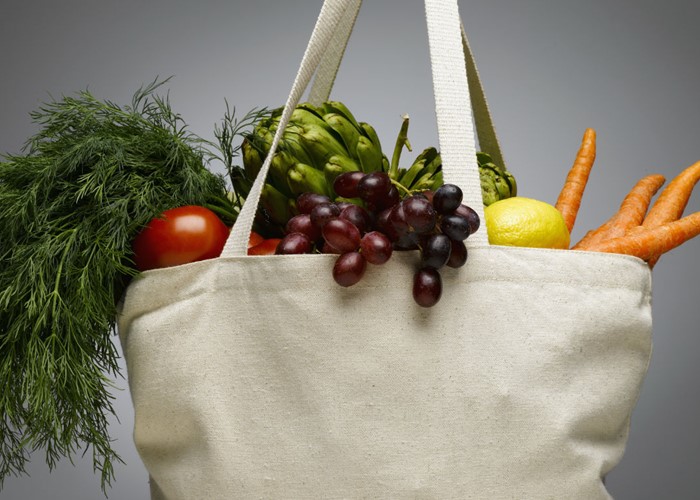The clever way to cut your food bill

We show you how to pay less for your groceries by finding the best seasonal produce at the lowest prices.
With food prices rising, Brits need to do everything they can to keep grocery bills under control.
And of course,eating food that's in season is good for both your wallet and the planet. Fruit and vegetables grown on the other side of the world are likely to cost more (because of the hefty transport costs involved) and every international food cargo adds to the carbon in the atmosphere.
Here are four easy ways you can cut your grocery costs by eating seasonally.
At the shops
There are now several excellent websites that show you which fruits, vegetables and other foods are in season at a particular time. Eat the Seasons and Eat Seasonably are both good places to start.
There's a great guide to seasonal eating on MumsNet, too. And as you can see, it's not just fruit and veg; the guide covers all sorts of nuts, meat, poultry and fish as well.
It's easy to stagger into the supermarket and forget about all your other options. In fact, seasonal fruit and vegetables at street markets and greengrocers are sometimes cheaper than their supermarket equivalents, so it's worth finding your local independent trader.
Alternatively, you could join a food co-operative in your local area. Food co-ops work by taking advantage of community bulk buying power: Members of the community pool their resources and order food in large quantities, direct from suppliers.
Because they're ordering in bulk, they can often get great, seasonal fare at lower-than-usual prices. Check out this food co-operatives website to find out more - including how to find one near you.
We all know food prices have risen over the past year. But which products have been most badly affected? And is there anything you can do to curb the extra cost?
Grow your own
Many more people have started growing their own fruit and vegetables in recent years. Done right, it can be a cheap way of producing delicious, seasonal food - and you have complete control over the quality of the product.
The good news is, you can get started on a shoestring budget. Budget retailers like ALDI, LIDL and 99p Stores often sell grow-your-own starter kits for next to nothing, like this easy-to-grow mint kit or this four packets of seeds for 99p offer.
And there's plenty of information around to help complete beginners get started. BBC Gardening's Dig In campaign shows you how to grow all sorts of vegetables in the smallest of spaces - and you can even download a series of free grow-your-own advice cards from the Garden Organic website.
If you're a bit more ambitious, but you don't have your own garden, think about applying for an allotment near you. Many allotment schemes are run by councils, so approach your local one and see what's available.
Just bear in mind that the popularity of allotments has shot up in recent years,so you may have to join a waiting list!
Finally, many keen gardeners end up with much more seasonal produce than they can use themselves. If you have a green-fingered friend or family member, see if you can take some fruit and veg off their hands in return for a favour, like a bit of babysitting or DIY.
Recent question on this topic
Pick your own
If growing your own sounds a bit too time-consuming, go for the seasonal middle-ground that is pick-your-own. Berry fruits in particular are usually incredibly expensive at the supermarket, so this is a great way to bag them at affordable prices.
Just remember to factor in all associated costs, like the price of the petrol needed to get you to the farm. And clear out the freezer before you go, so there's plenty of space to store your haul until you need it!
This pick-your-own website shows you how to get started, and includes a map to help you find the pick-your-own spot closest to you.
Wild food
Foraging for seasonal food - a sort of wild equivalent to pick-your-own - has also increased in popularity during the recession. The British countryside is packed with edible vegetables, fruits and fungi, and as long as you adhere to a few basic rules, it can be a fun day out as well as a money-saving exercise.
There are some great wild food recipes on this page of the Woodland Trust's website. And if it's blackberries you're after, there's a free downloadable guide dedicated to spotting them, picking them, and turning them into all sorts of delicious dishes.
The Go Self-Sufficient website has various guides dedicated to foraging for seasonal greens, berries, meat, fish, mushrooms and nuts. And finally, check out these foraging dos and don'ts from River Cottage - to make sure you don't harm the environment or yourself!
More: Avoid this sneaky supermarket rip-off | 10 ways to slash your supermarket spend
Comments
Be the first to comment
Do you want to comment on this article? You need to be signed in for this feature